Winter feeding tips
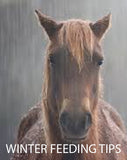 With the colder weather on the way, now is a good time to be planning dietary modifications to ensure your horse gets the energy and nutrients he needs to take him through the winter months. As the temperature drops horses need more energy to keep warm. All warm bloodied animals have a ‘critical temperature’: this is the outside temperature below which an animal must produce extra heat to maintain its own body temperature. What this ‘critical temperature’ is varies from each individual depending on condition. An adult horse with a good covering of flesh and a thick winter coat may be quite comfortable down to a much lower temperature than an older, thinner animal with a finer coat. This horse is going to need extra energy to keep warm at a higher outside temperature than the first.
With the colder weather on the way, now is a good time to be planning dietary modifications to ensure your horse gets the energy and nutrients he needs to take him through the winter months. As the temperature drops horses need more energy to keep warm. All warm bloodied animals have a ‘critical temperature’: this is the outside temperature below which an animal must produce extra heat to maintain its own body temperature. What this ‘critical temperature’ is varies from each individual depending on condition. An adult horse with a good covering of flesh and a thick winter coat may be quite comfortable down to a much lower temperature than an older, thinner animal with a finer coat. This horse is going to need extra energy to keep warm at a higher outside temperature than the first.
Horses require about 15-20% more feed for every 5-6 degrees the outside temperature falls below their ‘critical temperature’. If you have a horse that is a hard keeper it is a very good idea to try and get extra condition on him before the colder weather is upon you. Remember that it takes an extra 4000 calories (16,747 kilojoules) above maintenance needs to gain 0.45kg of body weight.
So what should we be feeding in the winter months?
Good quality hay. Hay should be the cornerstone of any well planned diet, and consider upping the quantity in the winter to 2% of overall body weight. This would be 10kg of hay a day for a 500kg horse. Also be aware that up to 20% of hay can be wasted when fed on the ground so consider using a hay feeder to reduce wastage. Hay is digested through fermentation in the hind gut and this process itself generates heat which helps to keep the horse warm.
Clean drinking water. Horses must be encouraged to drink, especially if you have increased hay intake, to reduce the risk of impaction colic. Horses should be consuming at least 38 litres a day with increased hay intake. Add salt to hard feeds or ensure there is a salt lick in the paddock to encourage drinking. Ice cold water is not all that attractive and can exacerbate dental pain so you may need to consider providing your horse with luke warm water in buckets on a regular basis.
Hard feeds. There are 2 things to look for in your choice of hard feed: overall energy and fibre content. Many of us hard feed to meet the additional energy needs of our horses in the winter, but a hard feed such as rice bran or Speedibeet also provides additional fibre which is digested in the hind gut through fermentation, helping to keep the horse warm.
Fat. If you are really struggling to get enough calories into your horse to keep his condition, consider adding oil to his ration. Horses can tolerate up to a cup per feed (and up to 2 cups per day), but as with all dietary changes introduce this gradually. Oil is very dense in calories so can be helpful especially with hard keepers and older horses that struggle to get through their meals.
Supplements. Horses on poor quality forage will likely need supplementary vitamins, minerals and protein to meet their maintenance/work needs. What exactly their requirements are will be based on the overall balance of their diet. Be aware when hard feeding grains (oats, corn, barley) that whilst these may meet your horse’s additional energy needs they do not offer adequate protein, vitamin and mineral levels.
|
RELATED PRODUCTS |
|||
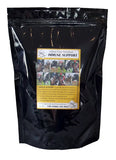 |
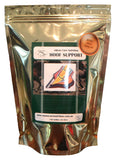 |
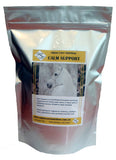 |
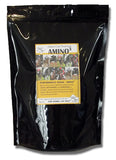 |
| Immune Support | Hoof Support | Calm Support | Amino-3 |